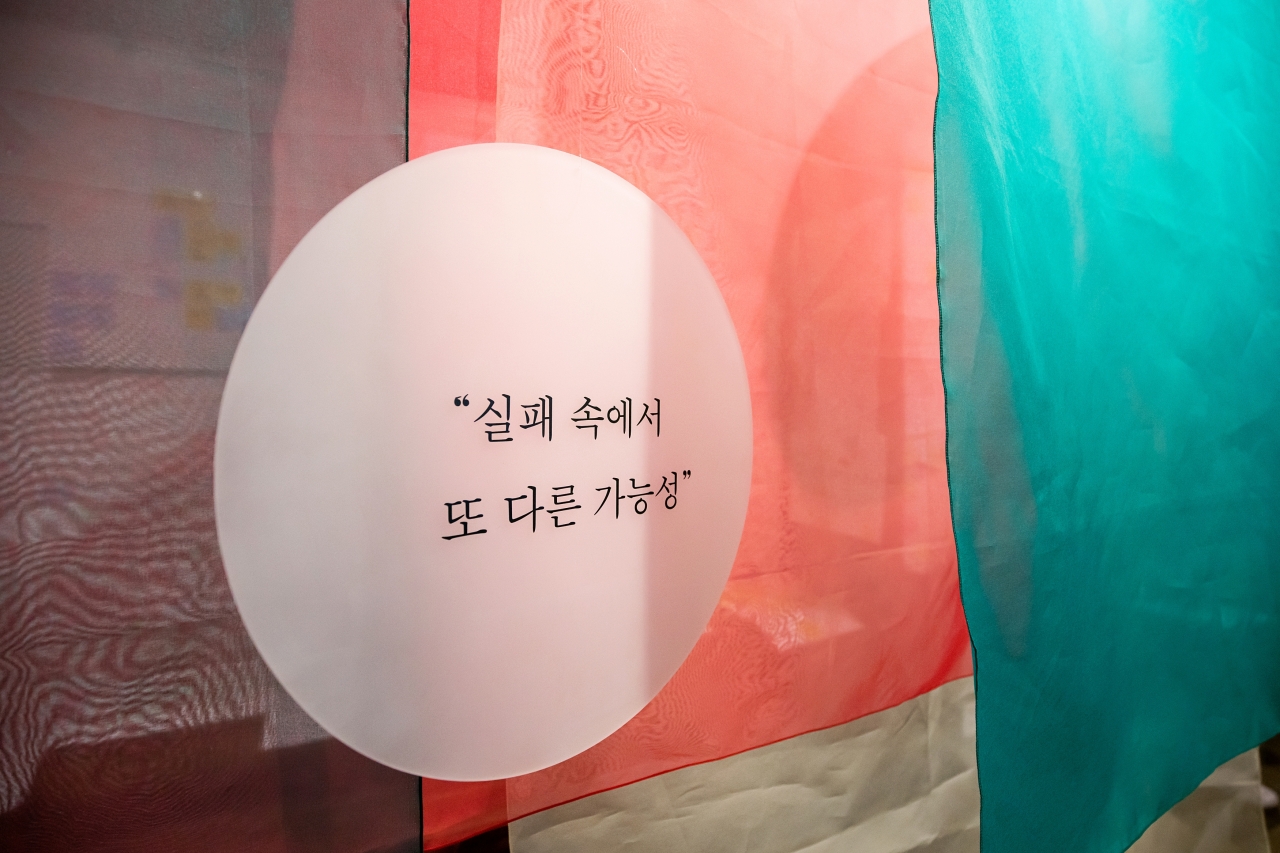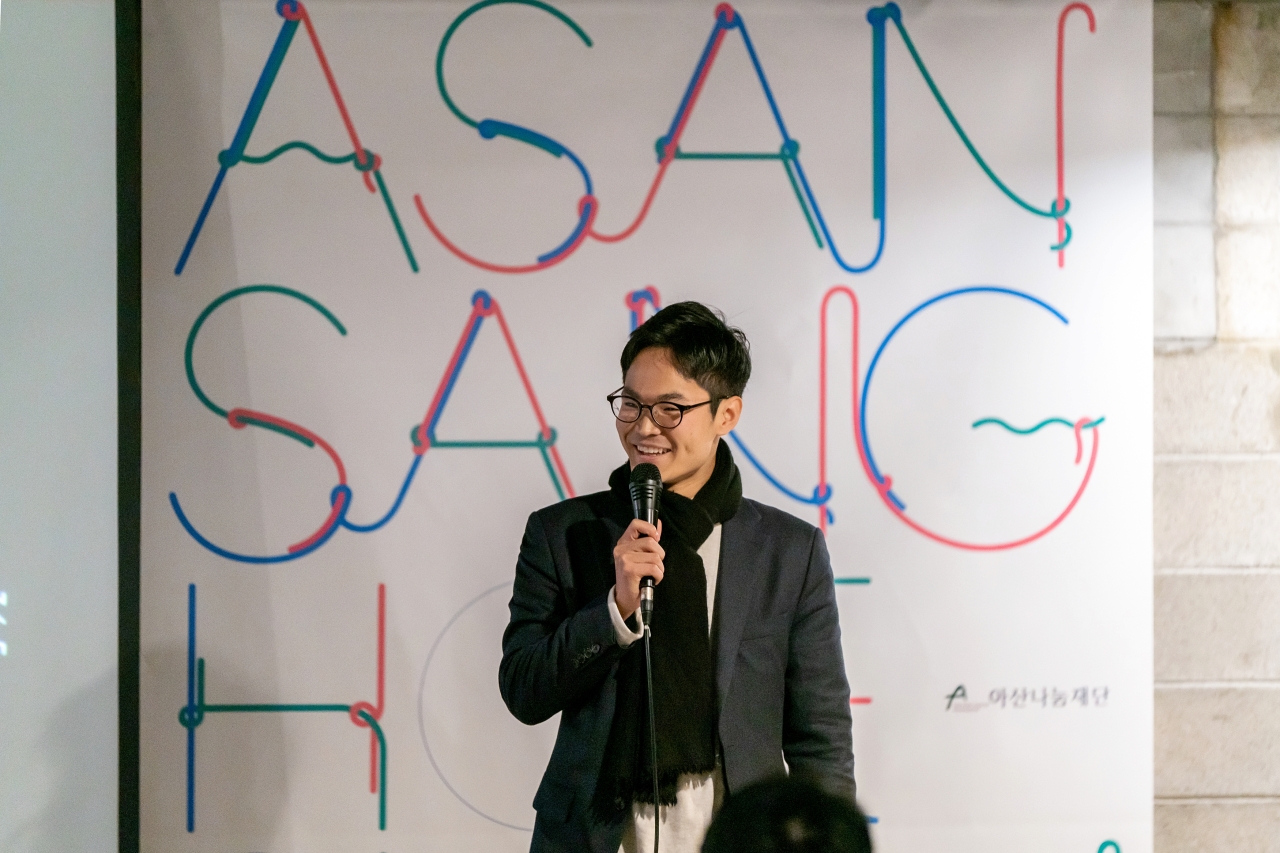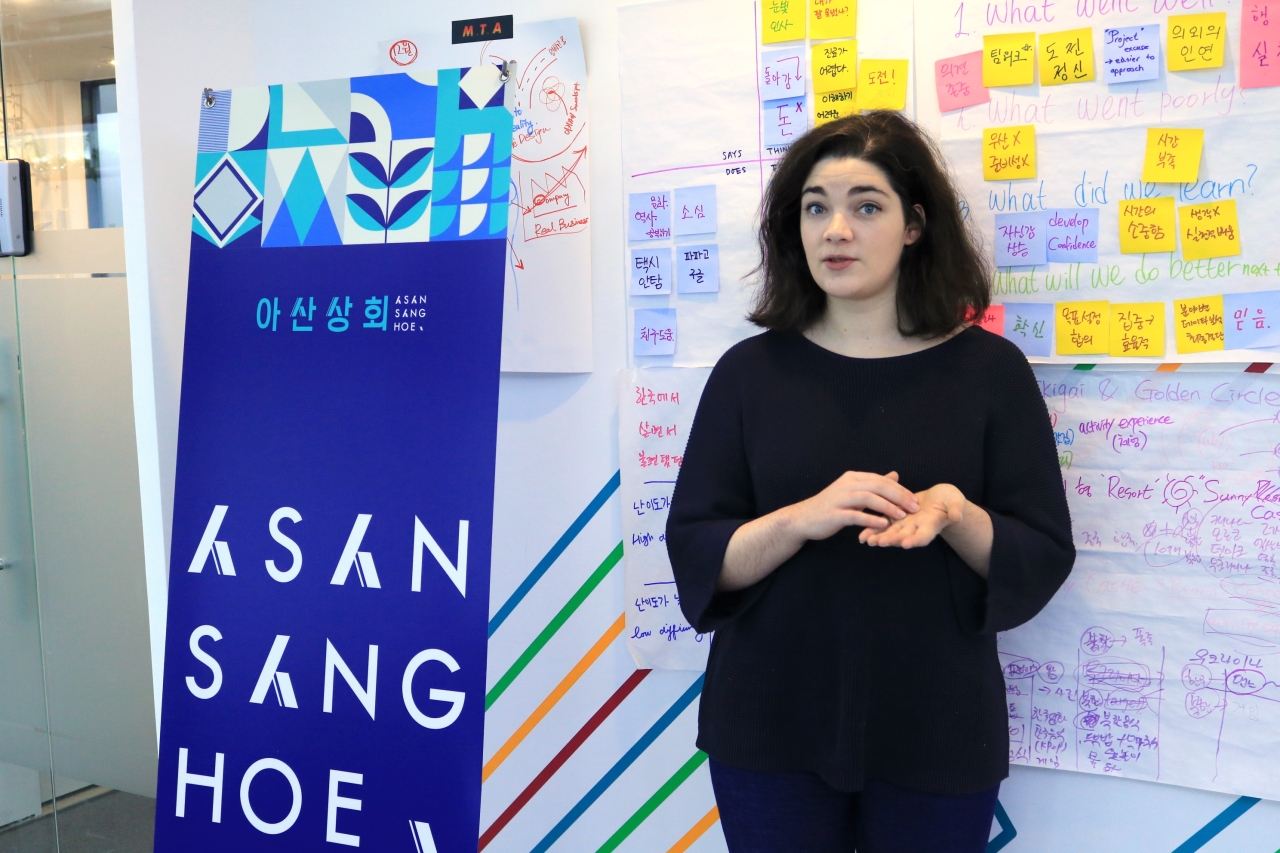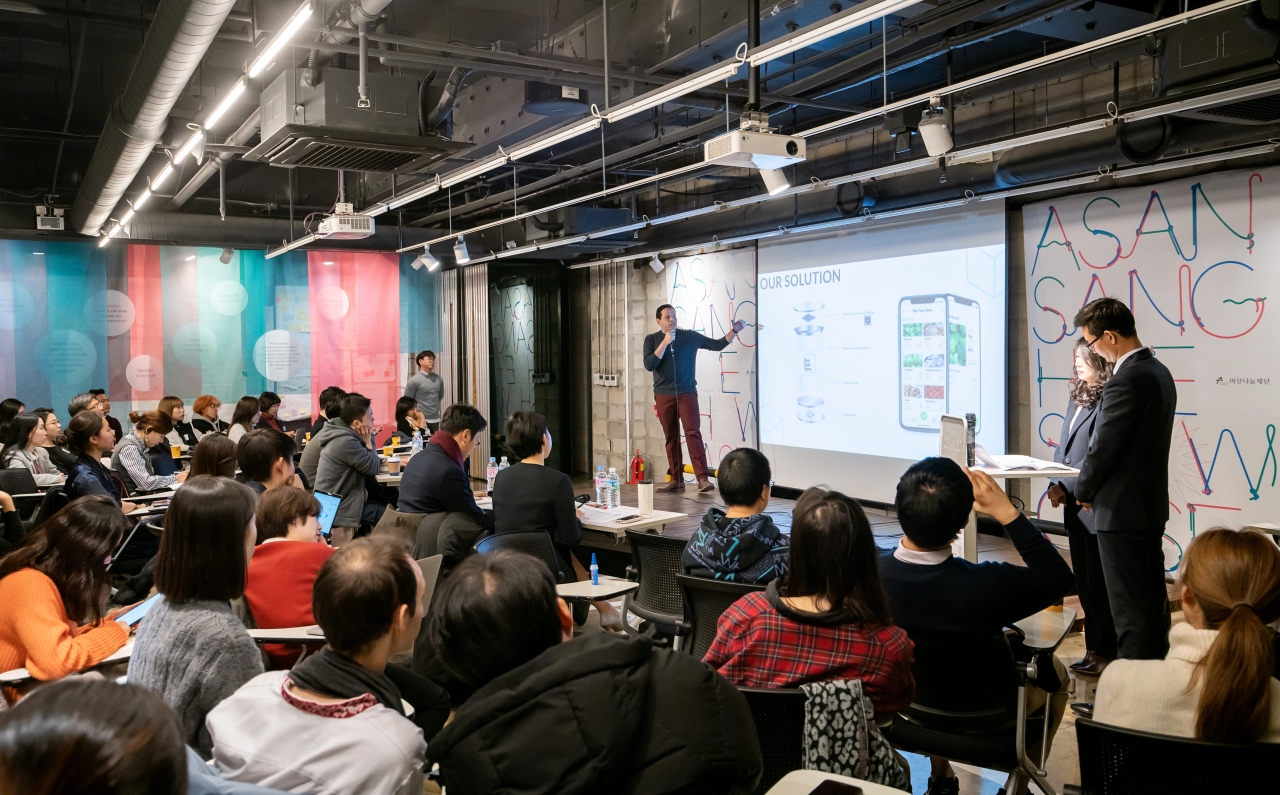Startups
North Korean defectors get taste of entrepreneurship in Seoul
When North Koreans defect to and resettle in South Korea -- in what is often an arduous journey that could take years with looming threats of repatriation -- they often find themselves looked down upon in what they thought would be their land of promise.
Getting over the threats, the prejudice and the hurdles, some North Korean resettlers in South Korea -- amounting to over 30,000 -- have managed to find a way into a soft landing in the business world.
 |
A signage reads "Failures nurture a new opportunity" at Asan Sanghoe Showcase held Dec. 13 at shared working space Maru 180 in Seoul. |
One of them is a man surnamed Heo, who fled the place of his birth in 2008, took refuge in 2010 and became a video content creator here with over 100,000 YouTube subscribers.
Bearing fruits from his past efforts to naturalize, Heo was setting sights on a bold step forward: becoming an entrepreneur.
“I was looking for an expert’s touch to bring my plan to life to build a multichannel network startup where people from all walks of life can join as content creators,” Heo told The Investor.
What gave him, along with dozens of other North Korean defectors, a taste of being an entrepreneur here was the four-month program Asan Sanghoe, financed and supported by the Hyundai-backed nonprofit organization Asan Nanum Foundation.
North Korean resettlers fell into a key category of some 30 Asan Sanghoe participants, alongside aspiring entrepreneurs from South Korea and the foreign community here.
Participants in Asan Sanghoe held a “pitching showcase” on Dec. 13 at Maru 180, a shared working space in Seoul. They broke into 11 teams to present business ideas ranging from a North Korean food catering service to a stationery franchise, education service platform, waste reduction solution, beauty product manufacturing and video content creation, before an audience of some 150 people.
This was a wrap of the first batch launched in August to address a need for a sustainable and practical entrepreneurship program for North Korean defectors.
 |
A participant in Asan Sanghoe Showcase pitches his startup idea on Dec. 13 at shared working space Maru 180 in Seoul. |
Before Asan Sanghoe, a majority of North Korean defectors had little chance to know where to start, or to explore whether they are even fit for entrepreneurship to achieve a personal goal.
According to a survey last year of 130 North Korean defectors by Asan Nanum and Woorion, another nonprofit organization that helps escapees resettle, 66.9 percent responded they were willing to found a company, 17.7 percent said they had started working on a startup and 3.1 percent said they had already founded one.
But the same survey showed that nearly 97 percent did not respond when it comes to startup items they had prepared or source of information or advice for entrepreneurship they can rely on.
“There are other (entrepreneurship) programs for North Korean defectors, but the problem is once the program ends, they focus on only promoting participants that they have the biggest chance of being stars of the program and not letting them fail,” Marta Allina, a Polish-born business coach in Asan Sanghoe, told The Investor. “None of these programs talk about failure in business.”
This gave birth to Asan Sanghoe, named in combination of late Hyundai Group Chairman Chung Ju-yung’s pseudonym “Asan” and the first store he operated, Kyungil Sanghoe.
Over the past four months, some 30 participants took part in lectures, mentorship sessions and workshops three times a week. North Korean resettlers were given chances to team up with South Korean or foreign participants here. North Korean resettlers were even free to drop out, because the program was primarily designed to help them discover a personal goal rather than to come up with an immediate marketable product.
The program also featured a two-week overseas trip to Germany, where the social innovation scene has been on the rise and participants were able to celebrate the 30th anniversary of the fall of the Berlin Wall at the scene.
Not to mention the practical part of Asan Sanghoe, Heo said a sense of belonging in a new community counted.
“Asan Sanghoe built a strong fence around the new community to protect us, so my confidence could be built,” Heo said.
Allina, member of Seoul-based community builder Weave, said the key behind the program was the concept of “teampreneurship” inspired by Mondragon Team Academy, where participants can nurture a teamwork mentality.
“The biggest success of this program is that (North Korean defectors) feel included,” Allina told The Investor. “Participants and staff created a community that they could fall back on.”
The affinity within a group, in the long run, will lay the groundwork for North Korean resettlers to stand out for themselves, Allina added, given the continuity in Asan’s support for the batch.
 |
Asan Sanghoe's lead coach Marta Allina poses at a shared office during an interview at Tips Town |
After the pitching showcase, Asan Sanghoe participants are given a chance for further acceleration through Asan Nanum Foundation’s incubation program. Those who found out that entrepreneurship is not the right fit for them may be given chances to apply for an internship.
“This is for a lot of them (participants) just the beginning of their journey,” she said. “They learned and now they have skills and a new perspective on life, business and teamwork. That would benefit them whether it would be working further on Asan Sanghoe or anywhere they go in life.”
Beneficiaries of the program are not limited to North Korean defectors.
Another Asan Sanghoe participant, Jose Quintanilla, is a master’s degree candidate in international business at Hankuk University of Foreign Studies.
The El Salvador-born student realized hurdles to launch a business without the right visa, while advancing his visa status to F-2-7 or D-8, appeared to be a tall order as a student, as it required certain Korean language proficiency, education level, work experience and income level. This led to the conclusion that joining Asan Sanghoe could promise him continuity in a business as an aspiring entrepreneur.
“I think applying (for) Asan Sanghoe was really like a launch pad for continuing with the startup world. Visa-related, I think this program could be of help,” Quintanilla said.
“I tried to help (foreign) participants go on a right visa track which would allow them to do business here,” Allina said.
 |
A participant in Asan Sanghoe Showcase pitches his startup idea on Dec. 13 at shared working space Maru 180 in Seoul. |
By Son Ji-hyoung (consnow@heraldcorp.com)








